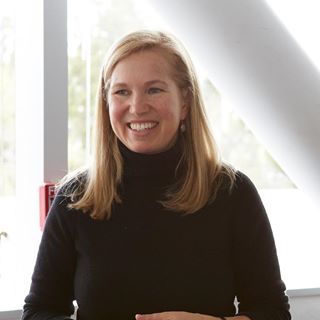Let’s get this out of the way: Jessica Livingston hasn’t seen HBO’s tech industry parody show Silicon Valley.
For one thing, the 43-year-old co-founder of Y Combinator, a top start-up incubator, doesn’t own a television. But even if she did, Livingston doesn’t sound like she’s keen to catch Tinseltown’s take on tech.
“If it was on in a hotel, I might watch it,” she concedes. “But I’m also not going out of my way to watch it, because I’m sure I’d be like, ‘Ugh, that’s such bullshit. That’s such a lie.’ It would make me cringe, you know?”
Even worse, Livingston worries the Valley’s mainstream popularity breeds a new kind of wannabe entrepreneur she calls “scenesters.”
“It’s kind of prestigious to start a startup now,” Livingston says. “Your mom gets it, and your grandmom gets it. They’ve seen The Social Network. What that brings out are people who are either ill-suited to being founders or in it for the prestige, not the love of creating something.”
Livingston, of all people, would know. Previously a marketing executive for the boutique investment bank Adam Harkness, she started Y Combinator in 2005 with Paul Graham, Trevor Blackwell and Robert Tappan Morris as a way to discover, fund and nurture some of Silicon Valley’s most promising entrepreneurs. The Mountain View, Calif.-based startup incubator has since seen over 700 startups come and go including Airbnb and Dropbox — cementing a reputation as one of the leading spawning grounds for nascent startups angling to be the next big thing.
As YC grew, so did Livingston’s responsibilities on the personal and professional fronts. She and Graham married in 2008 and have two sons now. When Graham announced he was stepping down earlier this year, Livingston stepped up at YC, alongside entrepreneur Sam Altman, who now serves as president. She helps vet applicants, plays counselor to squabbling co-founders and runs YC’s Startup School, a series single-day events in cities like New York and London where alumni serve up advice to local entrepreneurs. “I simply don’t have enough time to do all the things I want to do,” she says.
For its part, YC has accomplished a lot in the years since its founding, helping pioneer a way for startups to receive funding and mentorship. Startups apply for one of two “funding cycles” each year. If they’re admitted, they receive $120,000 and get entry into a three-month program during which founders avail of YC’s free food, workspace and advice. In return, YC get 7% equity in the startup.
There were 85 startups in YC’s summer 2014 cycle, tying with a group several years ago for the largest ever. Frankly, some seem promising than others. While one startup called Fixed toiled away on an app that helps drivers contest parking tickets, another called Glowing Plant has grown plants that essentially glow in the dark (Yes, really). As odd as the idea sounds, Glowing Plant claims it has 10,000 preorders. “We think that the beginning of a revolution in making really useful genetically modified organisms will be with something fun like this,” explains Livingston.
Livingston and the YC crew are betting on the founders just as much, if not more so, than the actual ideas, even if the vast majority of those startups won’t succeed in the long run. Because for every Dropbox or Airbnb, there are countless others that stall because of infighting among founders, lack of funding, or users simply don’t want to use or buy their product. Indeed, this week’s day-long event at Mountain View’s Computer History Museum, dubbed Demo Day, which had these startups pitch to potential investors, media and other Valley-types was perhaps the most exposure many of those fledgling businesses will ever get.
With YC groups larger than ever, and more ways than ever for aspiring startups to get funded, some critics question whether YC is losing relevance. “I think we’re actually proving that we are since we’re getting such a varied type of entrepreneur in varied states,” Livingston says, pointing to a range of startups in the summer 2014 cycle tackling a wider range of issues, such as biotech and nuclear energy.
For some, raising money is now a matter of signing up for AngelList, an online network that helps investors discover startups, or a successful Kickstarter crowdfunding campaign — the latter of which yielded businesses like the best-selling Pebble smartwatch. And there are many other so-called “incubators” out there now — TechStars, LaunchBox Digital, Summer@Highland, among others — offering somewhat comparable experiences to YC’s. Critics have also questioned the kinds of startups admitted: Growing Plants’s immediate usefulness seems limited at best, for instance. And with so many startups vying for YC partners’ attention, there’s the question of how much one-on-one time they now receive. (For its part, YC has added more advisors in recent months.)
Livingston maintains YC’s advice remains invaluable and helps set it apart. It was YC, for instance, that recommended Dropbox CEO Drew Houston get a cofounder when the MIT graduate applied for program in 2007, the reasoning being that different founders bring different strengths. Houston supposedly did just that, recruiting classmate Arash Ferdowsi in just two weeks. Now, the startup is a widely recognized name, with 300 million users worldwide.
In the weeks ahead, Livingston is perhaps most excited about a site launching by the end of August highlighting female entrepreneurs and YC alum like Adora Cheung, CEO of Homejoy, an online marketplace for housecleaners. Women now account for over 10% of the entrepreneurial mix that graduate from Y Combinator (up from just 4% in 2006), but Livingston agrees they have a long way to go to disspel concerns that Y Combinator has a men-only “brogramming culture” — the type popularized by Hollywood in shows like Silicon Valley or The Social Network. Chuckles Livingston: “Oh, we love funding all types of founders.”
